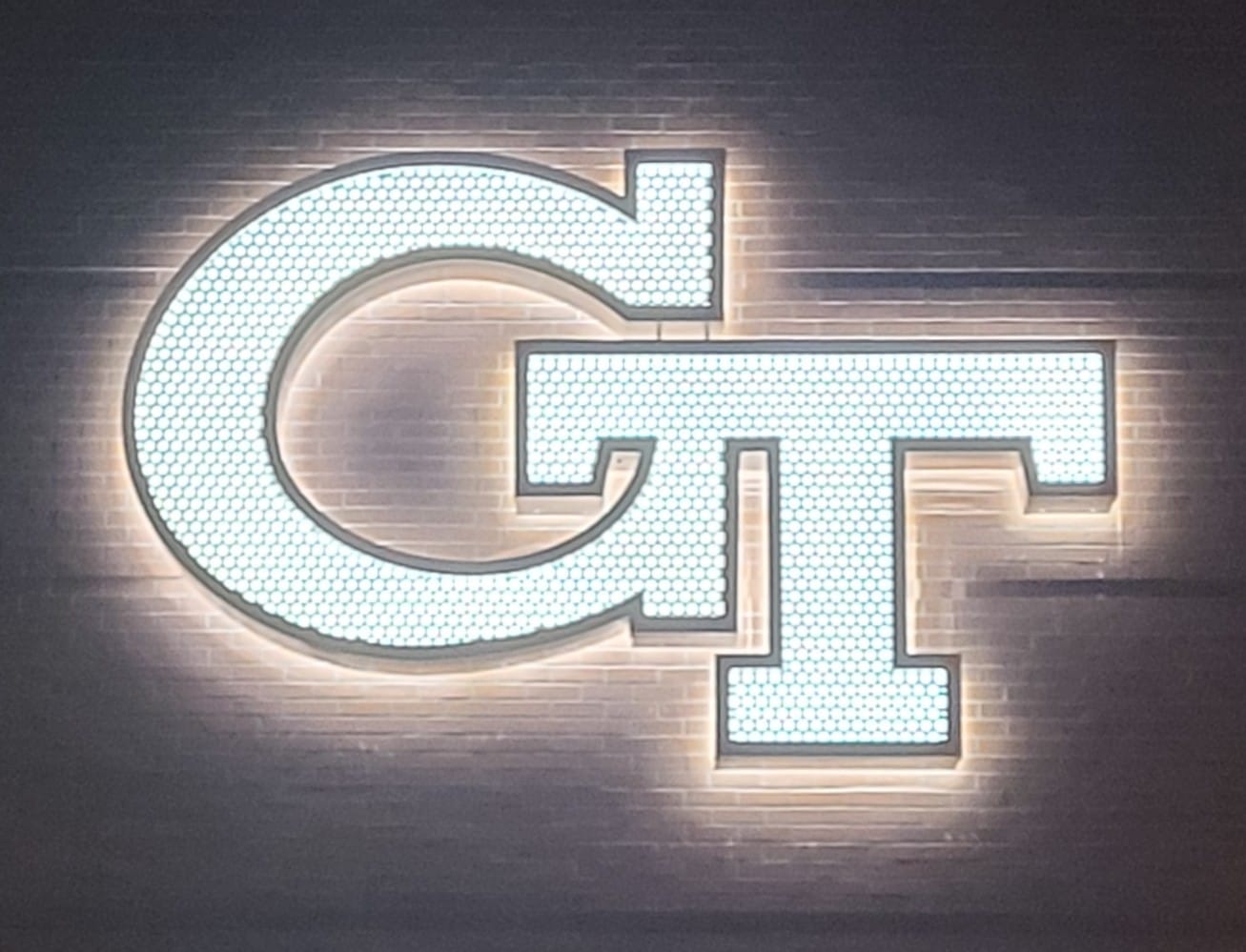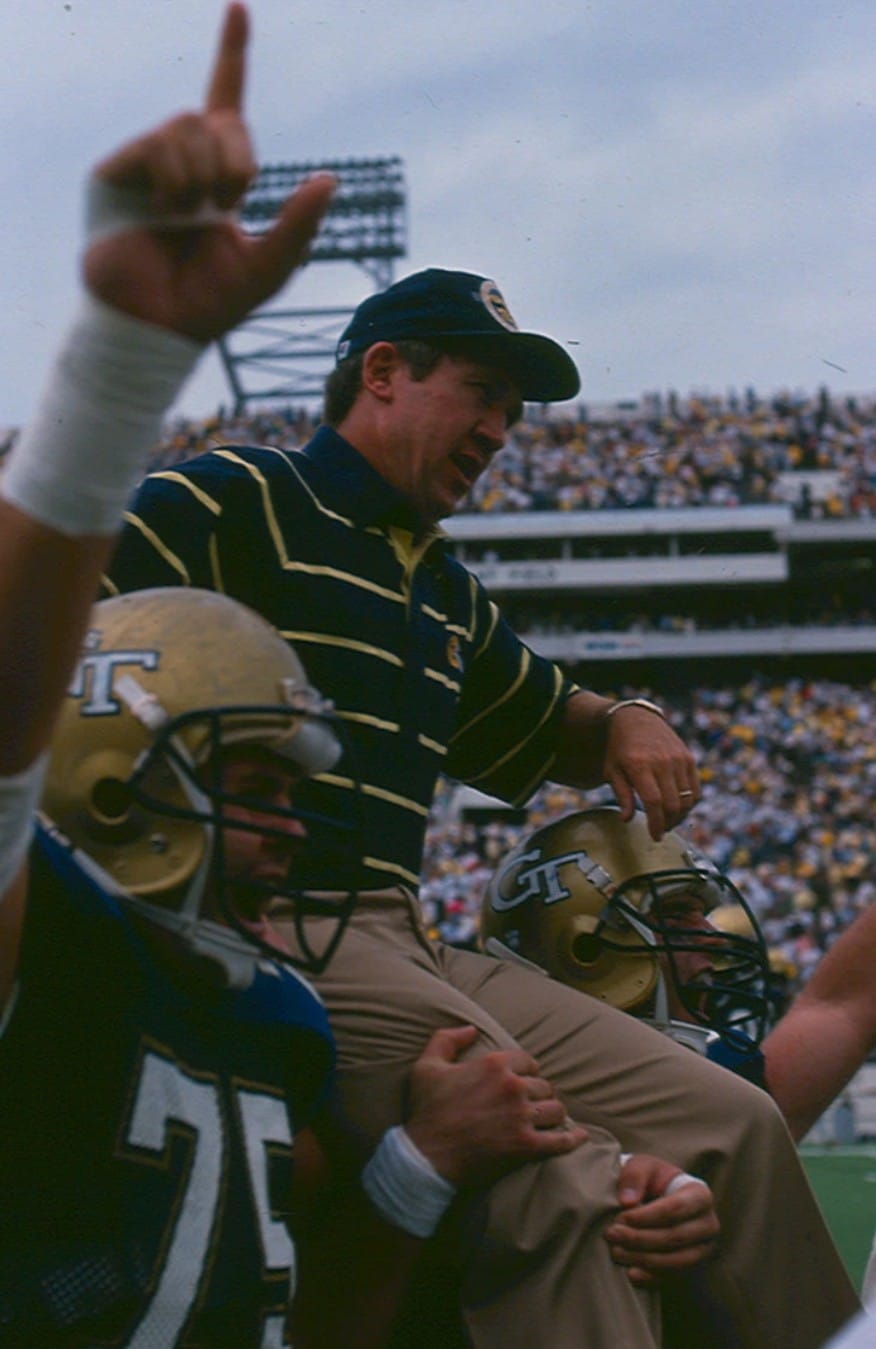Georgia Tech and Colorado in 1990- The Story Of A Split National Title

So Georgia Tech and Colorado ended up sharing the national title in 1990. That outcome arrived shortly after the January 1 bowl games, including Tech's 45-21 win over Nebraska in the Citrus Bowl, followed by Colorado's razor-thin primetime 10-9 win over Notre Dame in a controversial Orange Bowl.
The Yellow Jackets prevailed over a strong but somewhat inconsistent band of Cornhuskers, who came in at 9-2, having lost to Oklahoma and to Colorado.
Nebraska had climbed to #3 prior to losing to Colorado 27-12 for their first loss after beginning the year at 8-0.
When Nebraska accepted the Citrus Bowl bid, they went in with a #19 ranking.
In the Citrus Bowl, Tech jumped out to a 21- 0 lead, only to see Nebraska bring it to 21-14, prior to a Tech field goal following a fumble. From there, Tech stretched it back out to a 45- 21 final margin on two 4th quarter touchdowns by RB William Bell. The Jackets defense likewise had a big day, holding the vaunted Nebraska rushing attack far below their game average.

( photo courtesy of Georgia Tech Athletics)
Once that result was in from Orlando, the focus shifted 250 miles southward to the Orange Bowl in Miami, where Colorado (#1) faced Notre Dame (#5) in a rematch from the same bowl game one year earlier.
This time around, Colorado prevailed by one point. Or did they?
In a moment that will forever being shrouded in controversy, a late game 91 -yard punt return for a touchdown by Irish star wideout Rocket Ismail was called back on a clipping penalty. In the grainy replay, it is apparent that a Colorado defender was hit from behind by a Notre Dame blocker as Ismail accelerated around the right side nearing midfield. It seems likely to this day that the block did not affect the outcome of the play, which yielded a touchdown, wildly celebrated by the Irish– for a moment.
When the penalty was called, and the play nullified, Notre Dame went quietly into the night, with game ending 10-9 in favor of the Boys from Boulder.
And so it was that the AP voters saw fit to leave the crown with the team that had held it over the preceding several weeks.
There was and remains an uneasiness among Tech fans, and many non- partisan fans as well, about the logic of crowning a team with a loss and a tie over one that was undefeated throughout the entire season. For those interested in the minutae, the Buffaloes lost to #21 Illinois, while Georgia Tech was tied by an unranked North Carolina team. Colorado's tie was against 8th- ranked Tennessee in their season opener.
So the old argument could be made about why a one -loss team should ever be ranked higher than a team that was undefeated --especially if a team carried a loss AND a tie, as Colorado did in 1990. It's a good argument still today.
But there's more. Missouri had played Colorado down to the wire in game six , succumbing only at the final horn by two points on a play wrongly allowed to go forward as a fifth down.
The infamous " fifth down" game still ranks high on the list of " how'd that happen" across the broad history of college football.
Even now, as the game play log is re- read, it's difficult to believe. In a stadium filled with fans, in a high profile game on national television, one team was inadvertently given an extra down? With the game on the line, in the waning seconds, and with championship implications?
How? There still is no good answer. They forgot about third down? Didn't notice? No one? Refs, coaches, fans?
Since the down marker wasn't changed after the second play of the series, when Colorado spiked the ball to kill the clock on the fourth play (wrongly believed to be 3rd down), the excuse was made that a spike would certainly not have been executed if the Buffs knew it was in fact 4th down.
As soon as the play was over, an uneasiness developed as the referees realized their error, then held a 20 minute confab before deciding to leave the score as it sat.
That decision was challenged by the Missouri chancellor Haskell Monroe but the decision was upheld by the Big Eight commissioner Carl James.
Buffaloes' head coach Bill McCartney declined a chance to forfeit the game, citing the poor playing surface at Missouri's home field.
The result was a win for Colorado, which served as another step toward an opportunity to capture the national championship.
The 1990 national championship conferred by AP voters remains Colorado's lone title. Georgia Tech has four, including 1917, 1928 and 1952 ,along with the 1990 UPI coaches' poll.
Between the early loss and tie, that win over Missouri on fifth down, and the 10-9 win over Notre Dame to cap the season, 1990 Colorado had much to be thankful for. Virtually every national title team has a close call and/ or some good fortune. Colorado had it in spades in 1990.
After that win over Notre Dame , Colorado coach Bill McCartney was quoted in the New York Times as saying" It was fitting that it ended this way. All year long we've had to dig deep and find a way to win". While McCartney was speaking to his team's resolve, Tech fans might find some irony in the Buffaloes' victory in the fifth down game being described as " finding a way to win."
Notre Damenfinished with a #6 ranking after that narrow loss to Colorado. The Irish had won the title in 1988 with an undefeated season. And that 1988 title under Lou Holtz remains their most recent championship in football.
Georgia Tech fell back to 8-5 in 1991, following which Bobby Ross left Atlanta to coach San Diego in the NFL. He took his coordinators – George O'Leary and Ralph Friedgen --with him.
Bill Lewis took over at Tech in 1992 and the Jackets sank to 5-6 over each of the next two seasons. Lewis was fired after a 1-7 start in 1994.
Since the 1990 season, Georgia Tech has finished in the top ten just once– in 2014 with a #8 ranking under Paul Johnson. The Jackets went 11-3 that year, capped by a 49-34 victory over Mississippi State in the Orange Bowl.
Of course, when Tech meets Colorado in Boulder on August 29, the principal characters from 35 years ago will not be involved. Bobby Ross retired in 2000. Bill McCartney died on January of this year.
Deion Sanders was in the early years of a legendary NFL career in 1990. Brent Key was just 12 years old.
But the institutions themselves live on, and their histories grow. And so the "first- ever" meeting between Tech and Colorado may feel a bit like a renewal to the old guard of either school.
Patrick Conarro RamblinSports.com
